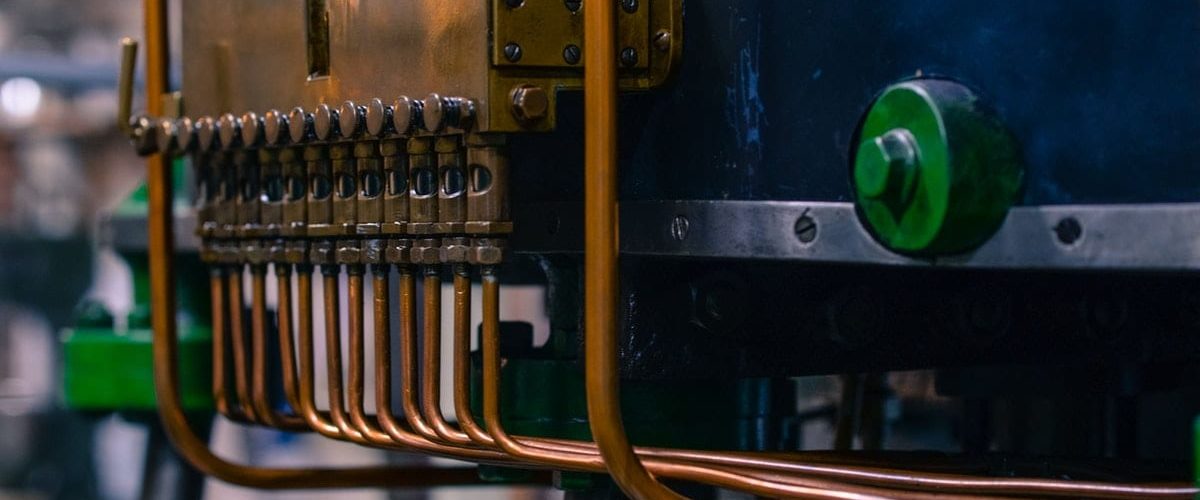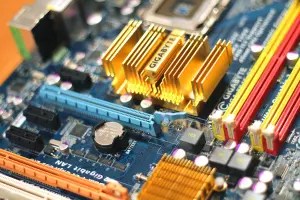
Industry influencers and innovation experts say we are in the middle of the 4th Industrial Revolution, defining this time in manufacturing history by the implementation of powerful computing and automation into industrial processes.
The Industrial Revolution was the period around 1800 when new technology allowed for improved manufacturing processes and triggered a shift away from farming and toward urban settings. There is some debate about whether we are actually in the midst of what has been dubbed Industry 4.0, but there is a definite transformation in the making.
What is important to know is that Industry 4.0 is more than just a buzzword at this point, and the manufacturing process is truly being revolutionized by evolving technologies.
Here is what you need to know to understand Industry 4.0:
What is Industry 4.0?
Factories can officially be labeled Industry 4.0 when they demonstrate the following capabilities:
- Information transparency: Cyber-physical systems use sensor data to gather and evaluate information and create a virtual copy of their surroundings
- Interoperability: Computers, machines and other technology freely connect and communicate with people
- Decentralized decision-making: Machines are able to operate as autonomously as possible with the help of cyber-physical systems
- Technical assistance: Technology plays an active part in solving problems and making decisions, while also completing tasks that may be too unsafe or time-consuming difficult for humans
The Technology Behind Industry 4.0
Today, emerging technology combined with existing solutions that are now both scalable and affordable are transforming manufacturing and opening new doors to industrial applications.
Some of the technology that is powering Industry 4.0 has been around for some time but is only now becoming market-ready and/or accessible for big business.

For example, the number of technologies able to collect mass amounts of data and the number of technologies able to process all of that data have each increased exponentially. Additionally, data can now be transformed into physical objects (think 3D printing) and computing power and connectivity have reached new heights.
Furthermore, as people have become more familiar with human-machine interactions like touchscreens and augmented-reality systems, enterprise innovation leaders have had more leeway to incorporate them into influential workplace processes.
Companies Who are Tapping into Industry 4.0
Industry 4.0 is still in its relatively early days. There are a growing number of opportunities for companies to modernize their manufacturing operations, and seemingly endless ways Industry 4.0 could develop.
Let’s take a look at the companies leading the way in Industry 4.0.
New Balance
Some products lend themselves to automated manufacturing better than others. Athletic footwear is not necessarily one of them, but that hasn’t stopped leadership at New Balance from finding ways to use technology to create more cost-effective processes.

In fact, as early as the 1990s, New Balance was using 3D printing. Today, this tool is an integral part of their manufacturing process and allows them to study athletes, capture data and create completely customized footwear.
Automation is also used throughout New Balance factories. From embroidery selection programs and digital systems for identifying defects along the production line, the classic shoe company is always looking for ways to automate tasks while still offering the quality of a handcrafted shoe.
General Mills
The food giant was able to effectively adapt to changing consumer eating habits by digitizing much of their manufacturing processes.
For example, updating their factories allowed them to make new versions of classic cereals that are now 100% gluten-free. This required the company to prevent any contamination of oats.

Ultimately, their upgrades reduced ingredient costs by $20 Million and saved $1 Million worth of energy. Utilizing Industry 4.0 tools and principles allowed General Mills to not only save money but also better serve their customers.
The Future of Industry 4.0
Moving forward, automation and machine learning technology will be a common component of manufacturing equipment and processes.
This will allow machines, technologies and robots to work more autonomously and with minimal input from humans. It also means that companies may need to rethink how they structure their protocols and their workforce.
The technology that makes up Industry 4.0 is evolving so rapidly that some companies are hesitant to make any decisive moves just yet. However, a wait-and-see approach will leave you playing catch-up rather than leading the way with transformational innovation.
Instead, discover, test and evaluate technologies that can bring your manufacturing practices into the 4th Industrial Revolution, so that you can determine which best align with your production environment, business needs and innovation goals.